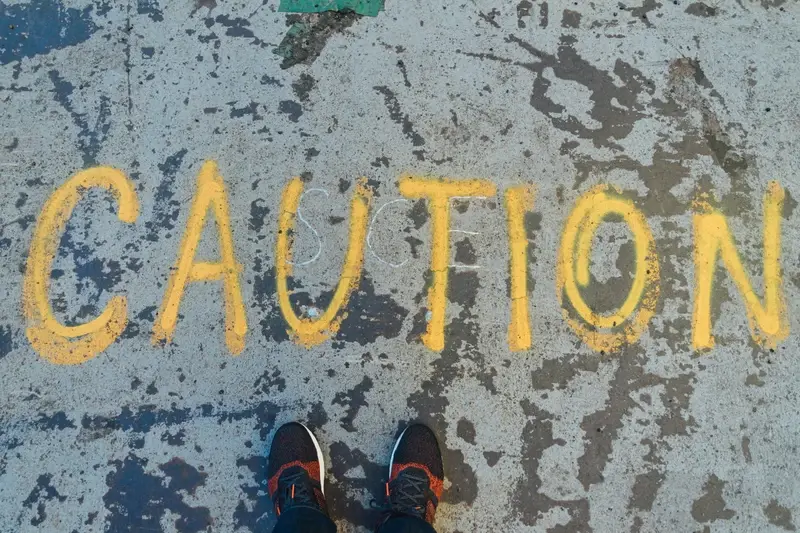How do I Find Reliable App Developers Near Me?
Did you know that over 90% of mobile app projects fail within the first year? It's a shocking statistic that highlights just how risky app development can be when you don't choose the right team. Finding reliable app developers near you isn't just about picking the closest company or the cheapest quote—it's about finding partners who understand your vision and have the skills to bring it to life.
I've worked with hundreds of businesses over the years, from small startups to major brands, and I've seen what happens when people rush into choosing mobile app developers without doing their homework. The results can be devastating. Wasted budgets, missed deadlines, and apps that simply don't work properly.
The most expensive app developer is often the cheapest one you hire first
But here's the good news—finding the right mobile application developer doesn't have to be a gamble. Whether you're searching for "app developers near me" or considering remote teams, there are proven strategies that can help you identify trustworthy professionals who'll deliver quality results. This guide will walk you through everything you need to know, from spotting red flags to asking the right questions, so you can make an informed decision that protects your investment and sets your project up for success.
What Makes a Good App Developer
After building apps for over eight years, I can tell you that finding the right developer is like finding a good mechanic—you want someone who knows their stuff and won't leave you stranded halfway through the job. The mobile app world is packed with developers, but not all of them are worth your time or money.
A good app developer should have a solid portfolio that shows real apps they've built, not just pretty mockups. Look for developers who can explain technical stuff in plain English; if they can't make you understand what they're doing, that's a red flag. Experience matters too—you want someone who's been through the ups and downs of app development before.
Key Skills to Look For
- Strong portfolio with published apps you can actually download
- Clear communication skills and responds to messages quickly
- Knowledge of both iOS and Android platforms
- Understanding of app store submission processes
- Problem-solving abilities when things go wrong
- Realistic timelines and honest about what's possible
The best developers ask loads of questions about your business and users before they start coding. They should care about making your app successful, not just getting it finished. Trust your gut—if something feels off during early conversations, it probably is.
Understanding Different Types of App Development Companies
Not all app development companies are created equal—I've worked alongside many different types over the years and each has its own strengths and weaknesses. When you're searching for "app developers near me" or "mobile app developers near me", you'll come across several distinct categories that operate quite differently from one another.
Freelancers vs Agencies vs Enterprise Companies
Freelancers are individual developers who work independently. They're often the most affordable option and can be brilliant for simple projects, but they might struggle with complex apps that need multiple skills like design, coding, and marketing expertise. Plus, if they get ill or take a holiday, your project stops.
Mobile app developer companies (agencies like us) typically have teams of 5-50 people with different specialities. We can handle everything from initial concept through to launch and beyond. The downside? We're usually more expensive than freelancers, but you get reliability and diverse expertise.
Large enterprise companies are the big players—think IBM or Accenture. They're great for massive corporate projects but often overkill (and overpriced) for most mobile applications.
Don't automatically assume bigger means better. I've seen solo developers create amazing apps and large companies deliver disappointing results. Match the company size to your project needs and budget.
Specialisation Matters
Some companies focus on specific industries like healthcare or finance, whilst others specialise in particular technologies like iOS or Android development. There are also full-service agencies that handle everything including app store optimisation and marketing.
- Specialist companies often have deeper industry knowledge
- Full-service agencies can manage your entire project
- Technology-focused developers might offer cutting-edge solutions
- Generalist companies provide flexibility across different needs
Red Flags to Watch Out For
I've worked with enough clients who've been burned by dodgy developers to know the warning signs when I see them. Some of these red flags are obvious, others are more subtle—but they're all worth knowing about before you hand over your hard-earned cash.
The biggest warning sign? Developers who promise the world for peanuts. You know the ones—they'll build your "next Uber" for £500 and have it done by next Tuesday. If it sounds too good to be true, it probably is. Quality app development takes time and costs money; anyone telling you otherwise is either lying or doesn't know what they're doing.
Communication Red Flags
Poor communication is another massive warning sign. If they take days to respond to your emails or can't explain technical concepts in simple terms, run. You'll be working together for months—communication problems only get worse under pressure.
- Vague or unrealistic project timelines
- No clear contract or scope of work
- Demanding full payment upfront
- Can't show you similar projects they've completed
- Won't provide references from past clients
- Offshore teams with no local project management
Trust your gut feeling. If something feels off during your initial conversations, it probably is. Good developers are transparent about challenges, realistic about timelines, and happy to answer your questions—no matter how basic they might seem.
How to Research and Vet Potential Developers
Right, so you've got your shortlist of potential app developers near me—now comes the detective work. I always tell my clients that this stage separates the wheat from the chaff, and trust me, there's quite a bit of chaff out there! Start with their portfolio; don't just glance at the pretty screenshots. Download their apps if they're still live and actually use them. Are they buggy? Do they crash? How's the user experience?
Check Their Digital Footprint
Google is your best friend here. Search for the mobile app developer company name plus words like "review" or "complaint"—you'd be surprised what turns up. Check their LinkedIn profiles, look at their team size, and see how long people have been working there. High staff turnover can be a red flag. Don't forget to check app store reviews for their previous work; real user feedback tells you everything you need to know about their quality standards.
The best way to predict future performance is to examine past results, and with app development, the evidence is right there in the app stores waiting for you to find it.
Ask for references from recent clients—any reputable mobile application developer will happily provide them. If they refuse or make excuses, that's your cue to move on to the next candidate on your list.
Questions to Ask Before Hiring
Right then, you've done your research and found a few app developers that look promising. Now comes the fun part—actually talking to them! I always tell my clients that this conversation is just as much about them interviewing the developer as it is about the developer understanding their project.
Start with the basics but don't be afraid to dig deeper. Ask about their experience with apps similar to yours, not just mobile apps in general. If you're building an e-commerce app, you want someone who's handled payment systems before. If it's a social platform, they should understand user authentication and data privacy.
Technical Questions That Matter
Here's what I'd ask if I were in your shoes:
- What's your development process from start to finish?
- How do you handle app store submissions and approvals?
- What happens if bugs appear after launch?
- Can you show me similar apps you've built?
- How do you keep projects on track and on budget?
- What's included in your ongoing support?
Pay attention to how they answer these questions. Good developers will be transparent about challenges and realistic about timelines. If someone promises you the world in record time for peanuts—well, you know what they say about things that sound too good to be true!
Understanding Costs and Timelines
Money and time—two things that always seem to be in short supply when you're planning an app project! I've seen countless clients come to us with unrealistic expectations about both, and honestly, I don't blame them. The app development world can be confusing, with prices ranging from a few thousand pounds to hundreds of thousands.
Here's the reality: a simple app with basic features might cost between £10,000-£25,000 and take 2-4 months to build. A more complex app with custom features, integrations, and polished design? We're talking £50,000-£150,000 and 6-12 months of development time. Apps with advanced functionality like real-time messaging, payment systems, or AI features can push costs even higher.
What Affects Your App's Price
- Number of features and screens
- Custom design vs template design
- Platform choice (iOS, Android, or both)
- Third-party integrations
- Backend complexity
- Testing and quality assurance
Always ask for a detailed breakdown of costs and timelines. Reputable app developers near me will provide transparent estimates that explain exactly what you're paying for and when each milestone will be completed.
The cheapest option isn't always the best value. I've seen clients pay twice to get their app built properly after choosing a bargain developer who cut corners.
Managing Your App Development Project
Right, so you've found your developers and signed the contract—now comes the fun part. Managing an app development project isn't like ordering a pizza where you just wait for it to arrive. You need to stay involved without becoming that client who micromanages every single decision.
Communication is your best friend here. Set up regular check-ins with your development team; weekly calls work well for most projects. During these sessions, ask to see what's been built, what's coming next, and if there are any roadblocks. Good developers will show you working prototypes or screenshots—not just talk about progress.
Key Things to Track During Development
- Major milestones and deadlines
- Budget spent versus remaining
- Any changes to original requirements
- Testing progress and bug fixes
- App store submission timelines
Here's something I've learned from managing dozens of app projects: scope creep is the silent killer. That brilliant new feature you thought of? It might be brilliant, but adding it halfway through development will blow your budget and timeline. Write these ideas down for version two instead.
When Things Go Wrong
Sometimes projects hit snags—servers crash, key developers get sick, or Apple changes their guidelines. The mark of a good development team is how they handle these situations. They should communicate problems early and come to you with solutions, not just problems.
Conclusion
Finding reliable app developers near me doesn't have to feel overwhelming—even though I know it can seem that way at first. You've now got all the tools you need to make a smart choice. Start by knowing what makes a good developer, understand the different types of companies out there, and keep your eyes peeled for those red flags we talked about.
The research phase is where you'll do most of your heavy lifting. Don't rush it! Take time to check portfolios, read reviews, and ask the right questions. I've seen too many projects go sideways because someone skipped this step and went with the first mobile app developer company they found online.
Budget matters, but remember that the cheapest option isn't always the best value. A mobile application developer who charges more upfront might save you thousands in fixes later. Communication is just as important—you want someone who'll keep you in the loop throughout the whole process.
Trust your gut feeling when you meet potential app developers. If something feels off during your initial conversations, it probably is. The right developer will make you feel confident about your project and excited about what you're building together. Take your time, do your homework, and you'll find the perfect match for your app idea.
Share this
Subscribe To Our Learning Centre
You May Also Like
These Related Guides

How Can You Spot Developers Who Over-Promise Results?

What Are The Red Flags When Choosing An App Developer?



